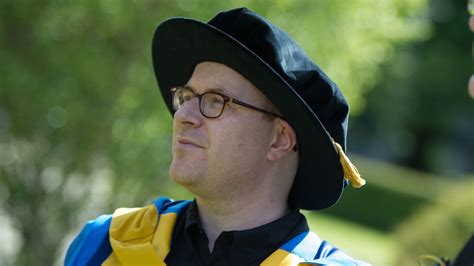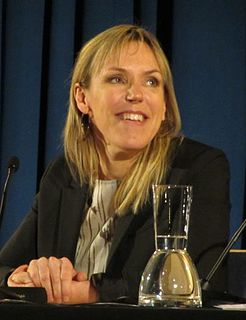A Quote by Maria Semple
Writing a novel is so hard, and there are so many problems that the last thing you're thinking about is adapting this mess you have on your hands as a movie. You just want to get it to work as a novel. That's your main focus.
Related Quotes
I think the most important thing is just to write. It sounds so simple, but sometimes it's not. You can get so distracted - -by having to work other jobs, or what other people have to say about your writing - -but the one thing that really matters is that you just keep going, especially when you're working on a novel. It's so easy to get discouraged and give up.
It was only after two years' work that it occurred to me that I was a writer. I had no particular expectation that the novel would ever be published, because it was sort of a mess. It was only when I found myself writing things I didn't realise I knew that I said, 'I'm a writer now.' The novel had become an incentive to deeper thinking. That's really what writing is—an intense form of thought.
Your opening should give the reader a person to focus on. In a short story, this person should turn up almost immediately; he should be integral to the story's main action; he should be an individual, not just a type. In a novel, the main character may take longer to appear: Anna Karenina doesn't show up in her own novel until chapter eighteen.
Writing has to do with truth-telling. When you're writing, let's say, an essay for a magazine, you try to tell the truth at every moment. You do your best to quote people accurately and get everything right. Writing a novel is a break from that: freedom. When you're writing a novel, you are in charge; you can beef things up.
Introduce your main characters and themes in the first third of your novel. If you are writing a plot-driven genre novel make sure all your major themes/plot elements are introduced in the first third, which you can call the introduction. Develop your themes and characters in your second third, the development. Resolve your themes, mysteries and so on in the final third, the resolution.
One of my big revelations was that nobody cares whether you write your novel or not. They want you to be happy. Your parents want you to have health insurance. Your friends want you to be a good friend. But everyone’s thinking about their own problems and nobody wakes up in the morning thinking, ‘Boy, I sure hope Sam finishes that chapter and gets one step closer to his dream of being a working writer.’ Nobody does that. If you want to write, it has to come from you. If you don’t want to write, that’s great. Go do something else. That was a very liberating moment for me.
I think one of the problems in determining the ending for a television series is that you don't know how long the show is gonna last. Particularly because we were in the unique position of adapting Tom's Perrotta novel The Leftovers, it always felt like the first season was gonna end with the end of Tom's novel, and then we would figure things out from there and look back.
Objectifying your own novel while writing it never really helps. Instead, I guess while you're writing you need to think: This is the novel I want to write. And when you're done you need to think: This is what the novel I wanted to write feels like and reads like and looks like. Other people might call it sweeping or small, but it's the book you chose.






































